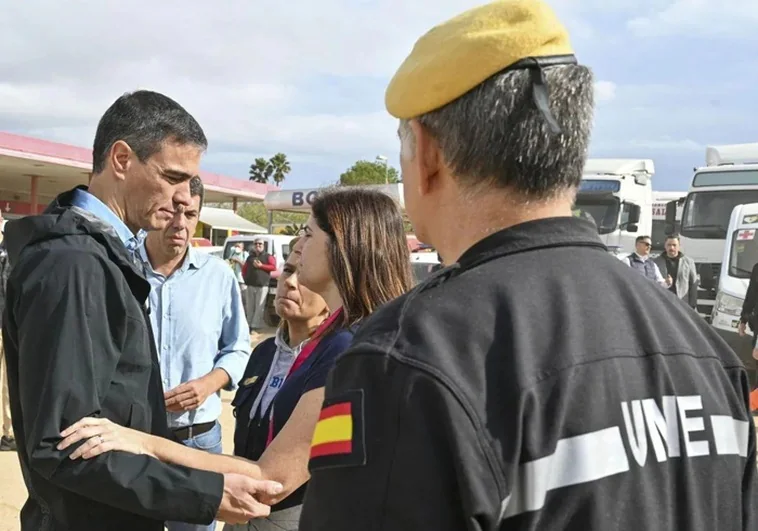Spanish government has not asked Nato to activate disaster plan despite widespread death and destruction in Valencia
Slovenia appealed for help after a flood that killed seven people and Turkey also received assistance from the Euro-Atlantic Disaster Response Coordination Centre after a devastating earthquake
Arturo Checa / Juan Sanchis
Valencia
Tuesday, 5 November 2024, 12:29
"Central government is ready to help. If it needs more resources, let the Generalitat [regional overnment] ask for them". Spanish president Pedro Sánchez repeated this message, addressed to Carlos Mazón and the Valencia region on up to four occasions during his visit to the area on Saturday 2 November. Help that he, as Spain's prime minister, has not asked Nato for, although it is something that countries such as Slovenia, affected by floods with seven deaths, or Turkey with a devastating earthquake with thousands of deaths, did in just two days.
According to Nato's Euro-Atlantic Disaster Response Coordination Centre, Spain has not yet activated this request. It is help that after other European disasters has involved sending helicopters and other troops across Europe.
The organisation has not yet heard from the Spanish government but have said, "We fully sympathise with the people of Spain affected by this tragedy. We have not received any request for assistance from the Spanish authorities. If necessary, Nato stands ready to coordinate the delivery of international assistance through its Euro-Atlantic Disaster Response Coordination Centre (EADRCC), which is Nato's primary civil emergency response mechanism".
However, central government sources have explained that in order to be able to make the request, the regional government has to request it first. "We cannot act ex officio", Nato has said.
Other previous cases
It took Slovenia just two days to request help from the centre. The clock is still ticking a week later for Sánchez. Slovenia suffered seven flood deaths on 4 August 2023. The state responded. Just two days later, Slovenia requested assistance from Nato's disaster response centre.
The country requested five helicopters, which were quickly provided. In fact, Spain was one of the countries that collaborated by sending an aircraft on 11 August of that year. In addition, the aid to Slovenia included the dispatch of 200 troops, including military personnel. The relief mission, according to the Nato centre's report, also included prefabricated modular bridges with a span of between 20 and 40 metres.
In the case of Turkey, aid was also immediate. On 6 February 2023, a 7.7 magnitude earthquake struck a dozen cities, causing an estimated 3,500 deaths and thousands of missing persons. The country's executive mobilised and turned to Nato's Euro-Atlantic Disaster Response Coordination Centre for assistance on the same day. Its request included emergency medical, urban search and rescue teams and three field hospitals.
